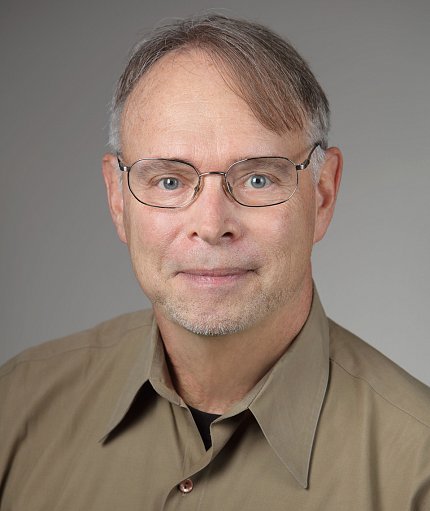After 28 Years, NINDS’s Smith Retires

Dr. Jeffrey Smith, chief of the cellular and systems neurobiology section (CSNS) in the Basic Neuroscience Program at NINDS, retired on Dec. 31, after 28 years of service to NIH—all with NINDS.
“I have arrived at the juncture in my scientific career where I have accomplished essentially what I set out to achieve in terms of my contributions and establishing my scientific legacy,” he said. “Of course, there is always more to accomplish in scientific research—to keep pushing discoveries forward and building on your body of research—but I am ready to pass the torch to the next generation to take our foundational discoveries to the next level.”
Smith earned his bachelor of science degree in zoology from the University of Maryland, College Park, in 1973 and his Ph.D. in physiology from Johns Hopkins University in 1979. He completed postdoctoral research in physiology at Harvard University, in neurobiology at the Marine Biological Laboratory in Woods Hole, Mass., and in neurophysiology at Northwestern University in Chicago.
“As an undergraduate, I became interested in physiology, and I realized mainly through working in physiological research laboratories as a student that engaging in scientific discovery could be a vocation with all the intellectual and practical challenges that I was looking for in a career,” Smith said.
Before coming to NIH, he was a Humboldt fellow at the Physiological Institute of the University of Göttingen in Germany, and a faculty member in the department of physiological science and interdepartmental program in neuroscience at the University of California, Los Angeles.
He joined NINDS in 1994 as a senior investigator in the Laboratory of Neural Control and was subsequently named chief of CSNS, which he founded in 1997.
“I came to NIH from an academic faculty position where I was developing a research career in neuroscience,” he said. “NIH provided the optimal environment for collaborative interactions and resources that would enable discovery and progress in my scientific program so that I could contribute impactfully to advance my field.”
Smith’s research career has been devoted to discovering and understanding the basic neural mechanisms of breathing in mammals. He and his team primarily focused on identifying the main structures and networks in the central nervous system that underlie and produce the rhythm of breathing.
One of Smith’s most noteworthy scientific accomplishments is identifying the pre-Bötzinger complex—a region in the brainstem—as the essential structure for generating respiratory rhythm.
“This seminal discovery provided the field with opportunities to unravel the cellular and circuit bases of rhythm generation—a quest in neurophysiology for over a century, which is still ongoing,” he explained. “My laboratory has made very significant inroads toward solving this fundamental problem as well as advancing the understanding of neural mechanisms controlling breathing normally and in pathophysiology.”
Smith authored or coauthored more than 100 articles, reviews and book chapters. His research as well as mentorship have garnered numerous honors.
In 2017, he received an NIH Graduate Partnership Program Outstanding Mentor Award from the Graduate Student Council. The award recognizes outstanding mentors for their leadership and dedication to graduate students. In 2016, he received a Postbac Distinguished Mentor Award.
“I have had the privilege of working with many talented students at NIH and NINDS,” Smith said. “I will miss guiding students toward fulfilling their career aspirations.”
In retirement, he plans to restore a legacy house on the Maryland seacoast, travel and continue to publish scientific work as a scientist emeritus at NINDS.
“NIH/NINDS has provided me with a phenomenally nurturing scientific environment allowing me to pursue my passion for science and be part of a community dedicated to scientific discovery—all of which is an absolute privilege,” he said.
“I will miss being fully immersed in the culture of scientific creativity and collegiality. There is a common bond of understanding among my colleagues that we are all part of a special collective on a mission dedicated to the cause of scientific discovery for its intrinsic value and to benefit society—a very heady enterprise that provides great personal inspiration and motivation.”
